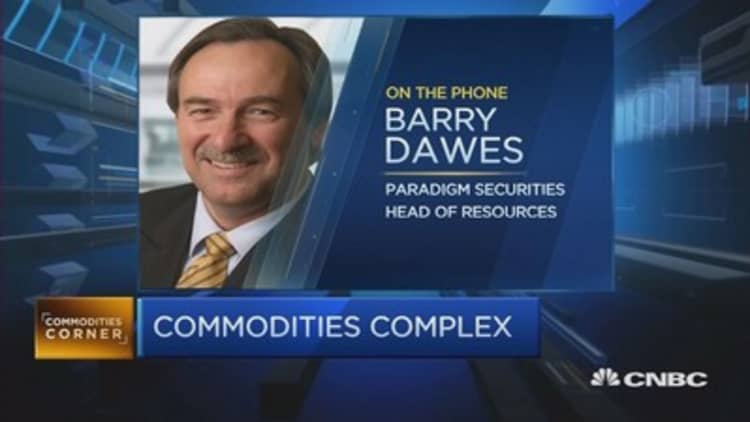
Oil prices are getting a leg up on the back of geopolitical tensions after Turkey downed a Russian plane that strayed into its airspace, magnifying the impact of a possible cut in production from the Organization of the Petroleum Exporting Countries.
Russia is one of world's largest oil producer and the conflict that took place on the edge of Syria contributes significantly to the premium on oil, analysts say. This risk premium coupled with the possibility that second largest oil producer Saudi Arabia is finally ready to cut oil production at the OPEC meeting next week.
Saudi Arabia is the world's largest exporter of petroleum and a top oil producer.
Both U.S. WTI and Brent crude oil prices hit two-week highs after Russia's conflict with Turkey but have since come off on profit-taking.
"Some of the things that come through fairly strongly is that Saudi Arabia is having difficulties with its budget with these low oil prices. It's probably now in a position where it has to cut production,'" Barry Dawes, head of resources at Sydney-based Paradigm Securities told CNBC's The Rundown.
"And I think That's what the oil markets in the world are really thinking about. Sure, the security of supply right throughout that Middle East is under threat through ISIS but the big story must be 'Will Saudi Arabia cut?'" he said.
Saudi Arabia said earlier this week that it will work with other OPEC players to keep oil prices stable, giving some confidence to prices that recently hit multi-year lows..
OPEC, including oil behemoth Saudi Arabia, has been holding out for a year on an oil production cut even amid the sharp losses in oil prices which have seen oil prices more than halve since July 2014.
Despite the gains, oil prices are still around six-year lows even as demand continues to rise.
U.S. oil production is also peaking, he added.
There are also signs that the industry is "anticipating prices rising in the future and not falling anymore and I see that right through the commodity system in the moment…the demand is still quite robust but prices just don't reflect the production cost and don't reflect the true supply and demand at the moment," said Dawes.
Still, not everyone is bullish about sustained gains in oil.
IG market strategist Evan Lucas said in a note Wednesday that the current commodities in rally is due mainly to investors exiting short positions on the rally rather than bears changing their minds.

